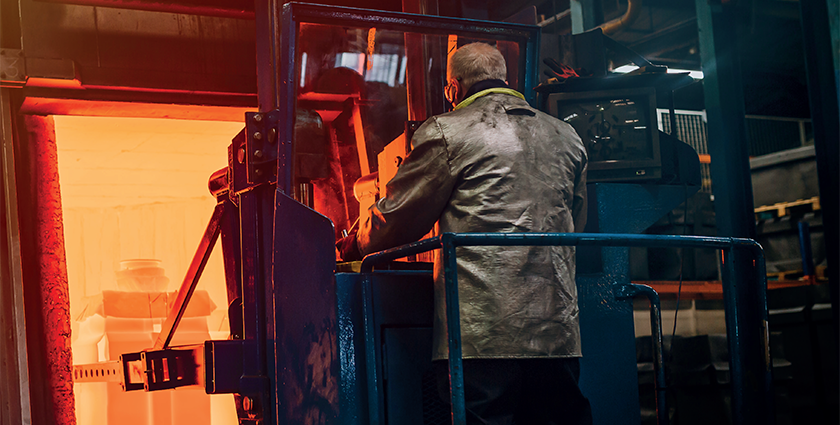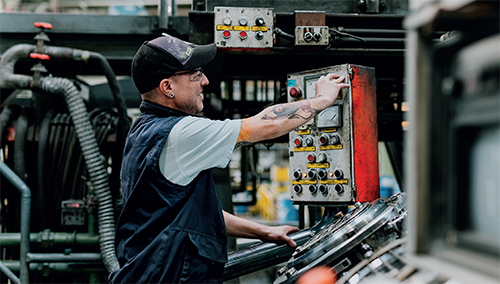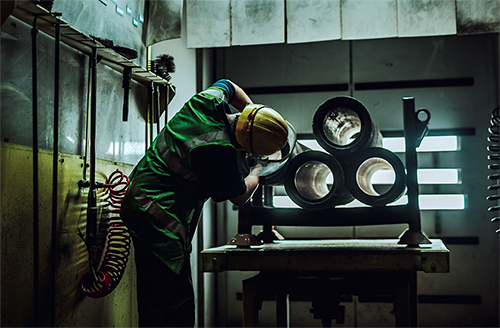
The latest on Doncasters: the superstar of superalloys and casting
I joined as CEO on 9th March 2020,” begins Mike Quinn, CEO at Doncasters, a leading international manufacturer of high-precision superalloy components that can withstand even the most demanding conditions. “Everything ground to a halt four days later when the pandemic swept through the UK and across the rest of the world.”
A trial by fire, indeed. As he goes on to explain, Mike went 18 months without visiting a single work site due to restrictions imposed by the brusque arrival of Covid-19. However, ultimately, he assures us at Manufacturing Today that the company has come through the whole ordeal as a more robust, resilient business.
“The pandemic forced us to address our material and non-labor cost base,” explains Mike. “Furthermore, in doing so, we improved our productivity, efficiency, and scrap rates; the company has truly gone from strength-to-strength since March 2020. Of course, the supply chain remains upside down – it has been a real challenge. But we have adjusted operations to mitigate external issues, including buying in and storing more stock to protect ourselves as well as investing in new working capital. As a result, we have managed to continue delivering products on-time to customers throughout the entire pandemic and supply chain turmoil.”
 Major investments
Major investments
Founded in 1778, Doncasters is one of the UK’s oldest manufacturing companies. With nearly 250 years of business under its belt, it is fair to say that the pandemic was not its first rodeo with adversity. Evolve, adapt, and overcome seems to be the mantra by which Doncasters operates.
The newly-launched Doncasters Production System represents another part of this commercial evolution. The Lean program is being rolled out across all of the company’s sites, meaning that no matter which Doncasters location one visits, they will all look the same and utilize the same metrics.
In addition, Mike reveals the team is currently busy setting up a new Enterprise Resource Planning (ERP) system – the first in the company’s history. Going forward, it will be applied to all sites within the next two years. “We are making some major investments and carrying out some mammoth undertakings across the company,” details Mike. “For instance, alongside the Doncasters Production System and our new ERP system, we will be investing around £100 million into the renewal of our machinery and equipment. This period is really motivating for our staff; it shows commitment and they can see the investments materializing in the factories before them.”
Vertical integration
Working in superalloys and manufacturing complex casting products, Doncasters offers an unparalleled range of solutions for high-performance and specialist applications across myriad markets. It utilizes a 2800-strong workforce and 15 advanced production facilities to serve aerospace (airfoils, combustion components, heat shields), industrial gas turbines (cast structural components, seal segments), superalloys (both vacuum- and air-melted), and automotive (turbocharger components and study welding systems) sectors.
Doncasters also acquired Uni-Pol, a leading manufacturing company specializing in investment casting technology, earlier this year, acquiring four additional production facilities in China, India, Mexico, and the UK in the process.
Through this work – by turning metals into motion, as the company tagline puts it – the firm has garnered clients like Siemens, GE, Rolls-Royce, and BorgWarner. “We have two main areas of focus: superalloys and precision castings,” explains Mike. “For the latter, we have two plants – one in Sheffield, UK and another in Los Angeles, California. We are the second largest seller of Nickel based superalloys in the world, and we benefit tremendously from having an internal supply chain because we do not have to rely on external vendors.
explains Mike. “For the latter, we have two plants – one in Sheffield, UK and another in Los Angeles, California. We are the second largest seller of Nickel based superalloys in the world, and we benefit tremendously from having an internal supply chain because we do not have to rely on external vendors.
“Moreover, while we sell superalloys to a number of markets, we also utilize them in our casting facilities by vertically integrating,” he goes on. “Casting makes up the largest portion of our business. Out of our 15 sites, 13 of them are dedicated to the manufacturing of complex precision casting components that will be used in, for example, an aircraft engine or industrial gas turbine.”
Focus on ESG
As our conversation has made clear, Doncasters might be in the business of turning metals into motion, but it is also in the process of getting its own ball rolling – and that means an ethos of continuous improvement.
“We are always looking at ways we can be better at what we do and how we do it,” says Mike. “It is a way of life at Doncasters; everyone – from myself as CEO to a team member at entry-level – knows that each and every day we must do better. We are always looking out for our people and ways in which we can make their work lives better. In the end, the best endorsement a company can have is a workforce that would gladly recommend it to friends and family. Going forward, we want to work on creating an environment that fosters such a response.
“Another concept that we have launched, and look to expand on in the future, is Environmental, Social, and Governance (ESG) reports,” he concludes. “We recently published our first one online, and it firmly lays out our ambition for the coming years. For instance, we have set ourselves a wealth of metrics: zero landfill, reducing our energy usage by ten percent, moving to a circular economy, and a more diverse and inclusive workforce – just to name a few. That is a big deal for us, and we look forward to making it become a reality.”
www.doncasters.com